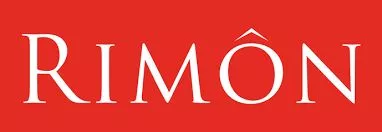A little over two years into his tenure as president of the United States, it is unclear how far Joe Biden has been able to clear the mammoth in-tray that would have greeted him as the new incumbent.
What is clear, however, is that over the past 12 months, much has been added to that in-tray to prioritise the president's attention: the ongoing Russia and Ukraine conflict, the hangover from the coronavirus (COVID-19) pandemic, and extant geopolitical and economic tensions, among many other priority issues.
Against this testing backdrop, it is perhaps inevitable that a number of issues generally considered a priority by the US government have been, if not exactly neglected, almost feel as if they have been placed on the backburner, despite the considerable weight usually attached to them.
One issue that has seen a slowdown over the past two years is the investigation and prosecution of corporate crime and corruption, Foreign Corrupt Practices Act (FCPA) enforcement matters in particular.
Testifying to this is the sidelining of the 'United States Strategy on Countering Corruption' (SCC) – a sweeping package of anti-corruption measures announced by the Biden administration that have yet to be enforced to anything like the fullest extent of their powers.
Unpacking the SCC
Following hard on the heels of the June 2021 'Memorandum on Establishing the Fight Against Corruption', in which president Biden declared that corruption enforcement is a "core United States national security interest", the December 2021 SCC pledges to surge resources for corporate enforcement, revise its corporate criminal enforcement policies and adopt a new stance on corporate recidivism.
According to Allen & Overy, the following three items are among the most significant of the SCC's resources and the measures most likely to affect corporate operations going forward.
First, coordinated intelligence sharing. The US government aims to improve its ability to collect, analyse and share corruption-related intelligence between its departments and with foreign governments and non-government partners to better map corruption networks and related proceeds and develop a more comprehensive understanding of the threat picture.
Second, increased transparency. The US will build a beneficial ownership database to collect beneficial ownership information for anonymous shell companies, which are often used to hide criminal proceeds. The Treasury Department will also consider prescribing minimum reporting standards for investment advisers and other equity funds.
Lastly, risk to gatekeepers. The US government also seeks to expand laws that hold the gatekeepers of the financial system, including lawyers and accountants, accountable for potentially complicit misconduct. The Biden administration intends to work with Congress to expand criminal laws and to increase penalties, including through professional sanctions.
"With the SCC, the Biden administration outlines its ambitious approach to fighting corruption utilising several parts of the US government," observes William Jacobson, a partner at Allen & Overy. "The strategy calls for coordinating intelligence sharing between US government departments and agencies and foreign partners, adding transparency to US finance laws, and intensifying corporate criminal liability."
However, while the folding of the SCC into the national security agenda clearly indicates that the Biden administration is serious about leading efforts to prevent and combat corruption at home and abroad, not all are convinced that the administration will put its money where its mouth is.
"The pressing question is whether the US government plans on using its effective arsenal in prioritising FCPA enforcement," ponders Daanish Hamid, a partner at Rimon Law. "So far, there has been some mixed messaging on that front. In 2021, president Biden declared fighting corruption a 'core' national security issue that required close attention."
So, while the US government, through the offices of the Department of Justice (DOJ), undoubtedly possesses the resources and tools needed to vigorously enforce the FCPA and related statutory and regulatory regimes, the bigger question is when this formidable arsenal will be fully deployed.
FCPA enforcement 2021/22
The FCPA, which is primarily enforced by the DOJ and the Securities and Exchange Commission (SEC), is one of the most actively enforced anti-corruption statutes that apply to international transactions – yet its application during the first year of the Biden administration was spotty at best.
However, FCPA enforcement activity in the administration's second year saw something of a resurgence, with significant fines and penalties being imposed, and numerous disgorgements taking place.
"In 2022, FCPA enforcement authorities targeted businesses involved in a variety of industries, including natural resources, financial services, waste management, healthcare, steel manufacturing, aviation, insurance and technology," says Mr Hamid. "In some cases, these companies were headquartered outside the US – a clear reminder of the extraterritorial jurisdiction that US authorities continue to assert when pursuing FCPA cases.
"However, notwithstanding that position, the number of corporate settlements in 2022 involving the FCPA have been fairly low compared to other years, including those under president Trump," he continues. "DOJ officials have recently been issuing statements that indicate that this downturn is only cyclical and that we should anticipate seeing more FCPA enforcement cases in 2023. So let us see if that actually plays out."
The Monaco Memo
Providing a good roadmap as to how the DOJ intends to reinforce and, in some cases, update its corporate enforcement policies, is the Monaco Memo – a memorandum issued by Lisa Monaco, deputy attorney general of the United States, on 15 September 2022.
"The Monaco Memo is internal in nature and is addressed to prosecutors and other DOJ officials," affirms Mr Hamid. "However, it also provides private-sector businesses with key insights as to how the US government intends to investigate and prosecute corporate criminals."
Among a variety of enforcement priorities and enhancements, the Monaco Memo – entitled 'Further Revisions to Corporate Criminal Enforcement Policies Following Discussions with Corporate Crime Advisory Group' – highlights six key actions, outlined below, that will support future DOJ anti-corruption activities.
First, the memo reinforces the DOJ's existing position that individual accountability is an important deterrent to illegal activity. The DOJ expects companies to disclose all relevant, non-privileged facts regarding individual misconduct in order for a company to be eligible for enforcement credit.
Second, prosecutors will consider past misconduct by a company on both a domestic and international level when determining how to resolve criminal cases.
Third, the DOJ will closely evaluate whether companies voluntarily self-disclosed a concern in a timely manner and provided sufficient cooperation before granting them enforcement credit.
Fourth, the DOJ will evaluate the strength of a company's compliance programme when determining what types of penalties to impose on that company.
Fifth, when evaluating the effectiveness of compliance programmes, the DOJ will look to see if a company provides executive and employee compensation incentives that strengthen compliance practices and make the programme truly effective.
Sixth, compliance monitors will continue to be used by the DOJ from time to time to police a company's activities; however, the DOJ plans on applying stronger rules when engaging such monitors.
"The DOJ has also made it clear that when resolving certain types of corporate criminal cases, it will expect chief executives and chief compliance officers to certify in writing that their compliance programmes are reasonably designed and have satisfied compliance obligations imposed by government settlement agreements," adds Mr Hamid. "This new development raises questions as to whether the DOJ intends for those senior-level officers to be personally accountable if their companies engage in further criminal violations."
More recently, in January 2023, Kenneth A. Polite, Jr, assistant attorney general, revealed additional changes to the corporate enforcement policy of the DOJ's criminal division – changes that Mr Hamid observes come at the heels of the Monaco Memo and have a direct impact on FCPA enforcement.
Mr Hamid also notes that the changes expand the scope of potential prosecutorial leniency, which can take the form of declinations or significant fine reductions, for companies that maintain proper compliance programmes, voluntarily disclose misconduct, provide strong cooperation to the DOJ and remediate improper practices.
Compliance programmes
Given the range of DOJ policy developments to have emerged in recent months, including increased corporate scrutiny, stiffer penalties, individual accountability and the imposition of compliance monitors, companies in scope need to be aware of the new realities and implement an effective compliance programme that can withstand the scrutiny of aggressive FCPA enforcement.
For its part, the US government advises companies to implement a compliance programme that reflects their risk profile, rather than take a 'one size fits all' approach to compliance. Thus, companies should conduct a risk assessment to determine the potential corruption exposure they face and then design a compliance programme accordingly – a key safeguard given enforcement authorities take programmes into account when determining whether a company is culpable if its employees or representatives engage in FCPA violations.
"Consistent with DOJ guidance, there are a variety of mitigation measures that companies can observe to reduce their exposure to potential government enforcement," says Mr Hamid. "First and foremost, companies need to adopt and then implement a proper risk-based compliance programme that accounts for their unique facts and circumstances."
According to Allen & Overy, the following steps can help companies to mitigate the investigation and enforcement risks they face: (i) conducting corruption risk assessments tailored to high-risk parts of the business; (ii) ensuring robust diligence and integration of new acquisitions; (iii) testing controls in key corruption risk areas; and (iv) testing the company's whistleblower and internal investigations programme.
However, a mistake often made by companies is that they expend considerable effort in designing a compliance programme but neglect to devote adequate resources to effectively implement it. "The DOJ and other enforcement agencies have made it clear that they will not favourably view compliance programmes that only exist on paper and do not manifest themselves in practice," adds Mr Hamid.
To counter this, enforcement agencies have suggested that companies leverage data-driven technology to enhance the effectiveness of their compliance programme, an option that involves a reliance on screening tools to ensure supply chain integrity and third party due diligence.
Enhanced activity
Having done little more than simmer during the first two years of the Biden administration, FCPA enforcement activity may finally come to a boil in 2023 following DOJ assurances that it will be routing resources back to combatting corporate crime and corruption.
"The Biden administration has made clear that the US government intends to garner the resources and tools needed to vigorously enforce the FCPA and related statutory and regulatory regimes," concurs Mr Jacobson. "We anticipate an uptick in the number of enforcement actions brought against global companies, which stems from an increase in transparency within the US government and in tips and referrals from foreign governments."
For Mr Hamid, such actions suggest that would-be corporate defendants should expect a renewed wave of inquiries in the months ahead. "The provisions contained in the SCC and DOJ's revisions to their corporate criminal enforcement policies will encourage prosecutors to take a tougher approach to the FCPA and other enforcement efforts against corporate defendants," he concludes. "As a result of these developments, we should expect to see enhanced FCPA enforcement activity in 2023."
Originally Published by Financier Worldwide Magazine
The content of this article is intended to provide a general guide to the subject matter. Specialist advice should be sought about your specific circumstances.


